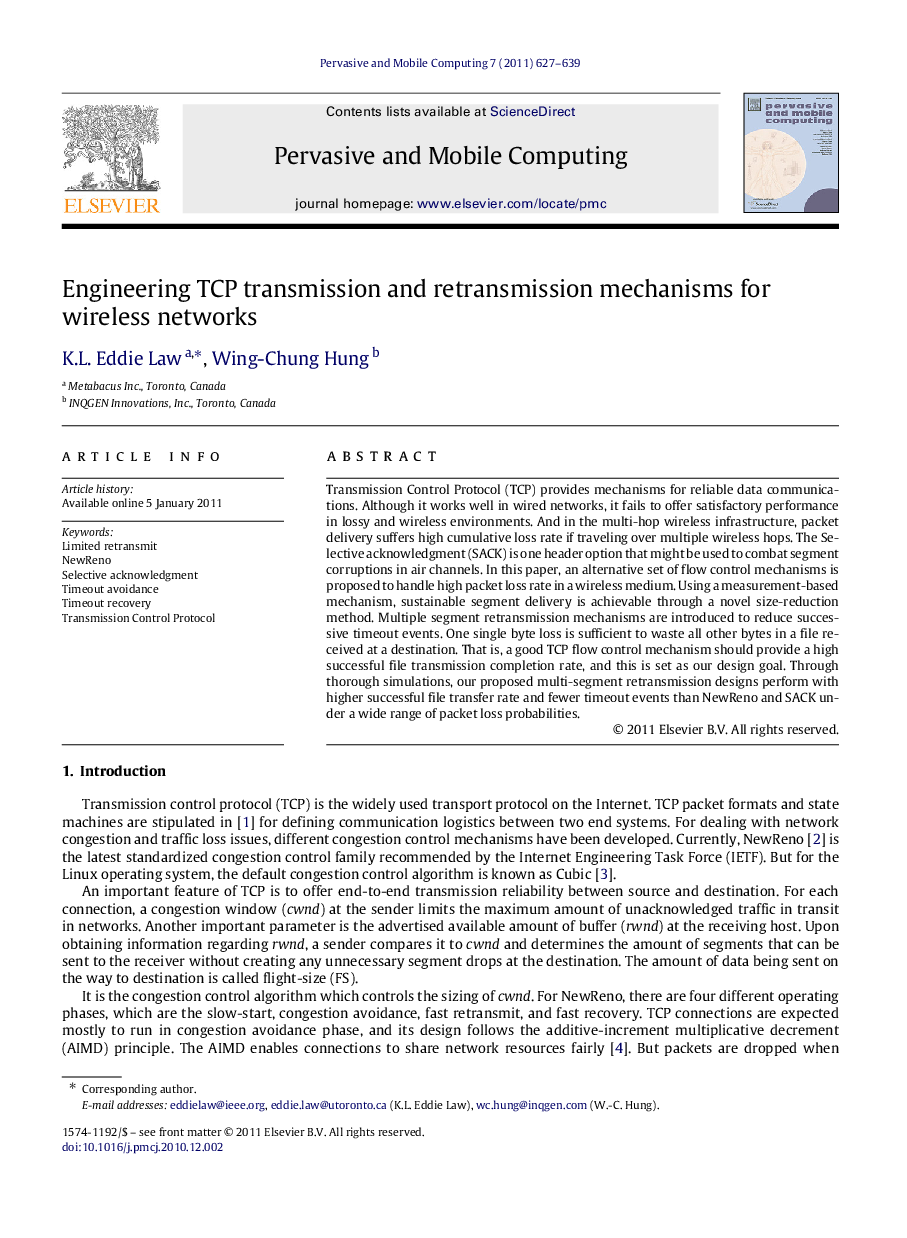| Article ID | Journal | Published Year | Pages | File Type |
|---|---|---|---|---|
| 464000 | Pervasive and Mobile Computing | 2011 | 13 Pages |
Transmission Control Protocol (TCP) provides mechanisms for reliable data communications. Although it works well in wired networks, it fails to offer satisfactory performance in lossy and wireless environments. And in the multi-hop wireless infrastructure, packet delivery suffers high cumulative loss rate if traveling over multiple wireless hops. The Selective acknowledgment (SACK) is one header option that might be used to combat segment corruptions in air channels. In this paper, an alternative set of flow control mechanisms is proposed to handle high packet loss rate in a wireless medium. Using a measurement-based mechanism, sustainable segment delivery is achievable through a novel size-reduction method. Multiple segment retransmission mechanisms are introduced to reduce successive timeout events. One single byte loss is sufficient to waste all other bytes in a file received at a destination. That is, a good TCP flow control mechanism should provide a high successful file transmission completion rate, and this is set as our design goal. Through thorough simulations, our proposed multi-segment retransmission designs perform with higher successful file transfer rate and fewer timeout events than NewReno and SACK under a wide range of packet loss probabilities.
